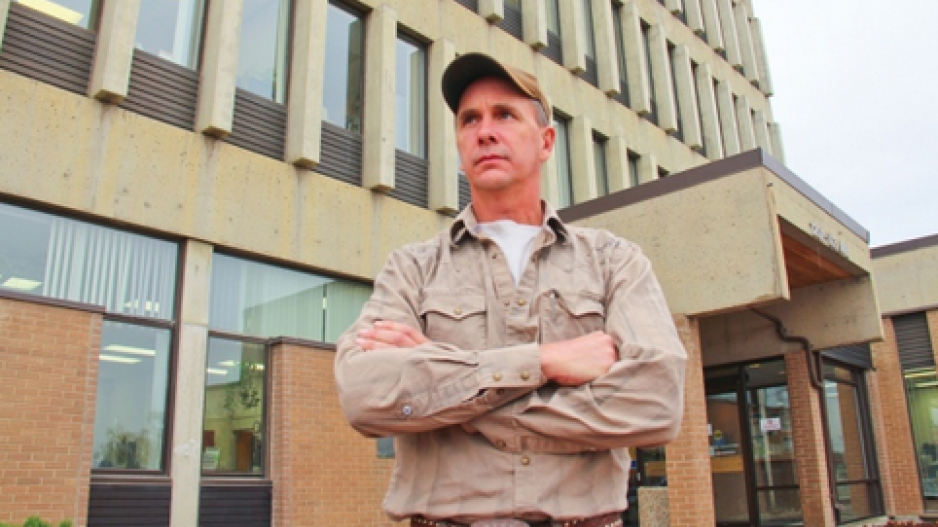The BC Supreme Court has ruled that a rancher in the South Peace region was unfairly compensated when BC Hydro expropriated his land for a power line.
Murray Caven won his lawsuit against the Crown corporation in a ruling handed down January 27.
"It's definitely a victory for all landowners, for sure," he told the Alaska Highway News.
BC Hydro expropriated part of Caven's homestead in October 2013, ahead of construction on the Dawson Creek and Chetwynd Area Transmission line (DCAT). Caven claimed the line, built in response to growing upstream oil and gas electricity demand in the area, lowered his property value and burdened him with out-of-pocket expenses.
Relying on evidence from a local land appraiser, Justice Neena Sharma concluded Caven was owed $60,691.06 on top of the $37,696.44 paid at the time of the expropriation. In all, BC Hydro owes the plaintiff $98,387.50.
"It took some pressure off," Caven said. "I was happy. It vindicates what I had said all along about Hydro and the way they went about things here."
While the line's direct impact on the 20-acre parcel was limited to a 36.9 square metre corner, Hydro did not account for other expenses and losses, the court ruled.
Those include the impact of a nearby substation on property values, as well as damage to Caven's private road during construction.
Construction also forced Caven to purchase additional feed and grazing lands for his cattle, rebuild a pen and clean up construction debris that could injure his animals.
"They said that (it wasn't enough)," he said of the court's ruling. "They said my business losses were definitely payable, and the piece of ground (Hydro) took, they awarded 100 per cent compensation for it. Technically, it's no good to me anymore."
Local appraiser Anne Clayton pegged total compensation at just over $144,000. While the judge deemed this too high, she did place "more weight on (Clayton's) opinions and reasoning than on (BC Hydro's appraiser)" because of her experience with rural properties in the Peace Region.
According to a written transcript, Clayton said BC Hydro appraisers undervalued the land and "failed to recognize and respect the nature of the rural market."
"People in the market for this type for property expect their privacy to be respected, and the opening of a wider corridor (for power lines) closer to the home site... removes this privacy by opening it up to vehicles such as quads, side-by-sides, and snowmobiles, hunters and partiers and increases the risk of vandalism," Clayton said, saying this made the property less valuable.
Caven runs up to 170 head of cattle on the property, as well as horses. The land has been in his family since 1956. The power lines near his property stand 130 feet tall.
Hydro carried out 65 appraisals along the line, which was energized late last year. So far, Caven's is the only lawsuit aimed at the project.
BC Hydro says it is reviewing the decision.
"Most transmission projects, like DCAT, cannot be built without BC Hydro entering into statutory right-of-way agreements with property owners along the route," spokesperson Simi Heer said in an email. "For DCAT, we were able to come to an agreement with 79 of 82 property owners. For the remaining three: we negotiated settlements with two after expropriation and one property owner exercised their right to a trial to challenge their expropriation compensation through the Supreme Court of B.C.
"As a Crown corporation, we have a responsibility to negotiate a fair settlement on behalf of all our customers."
BC Hydro still has time to file an appeal, Caven said.
Alaska Highway News



